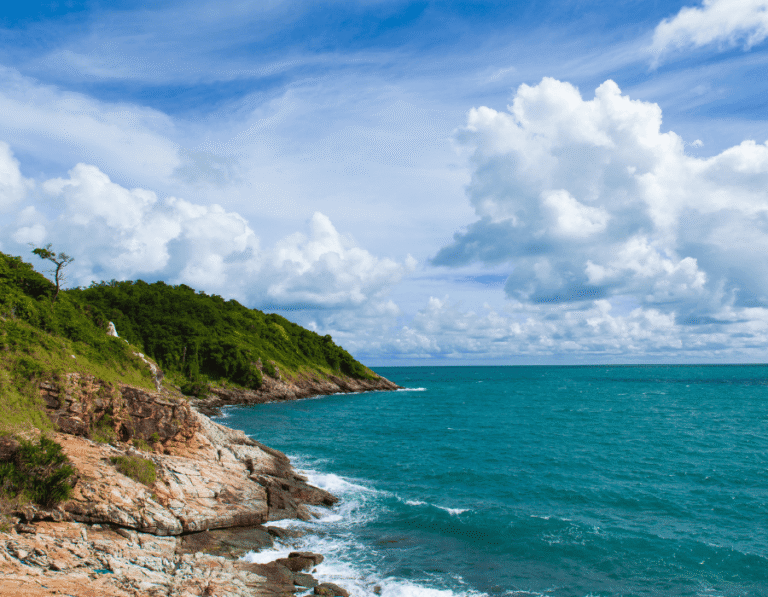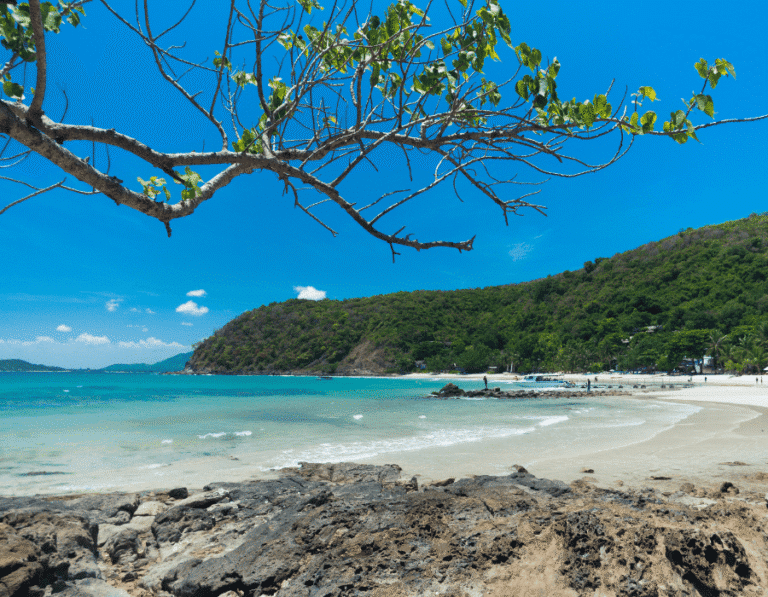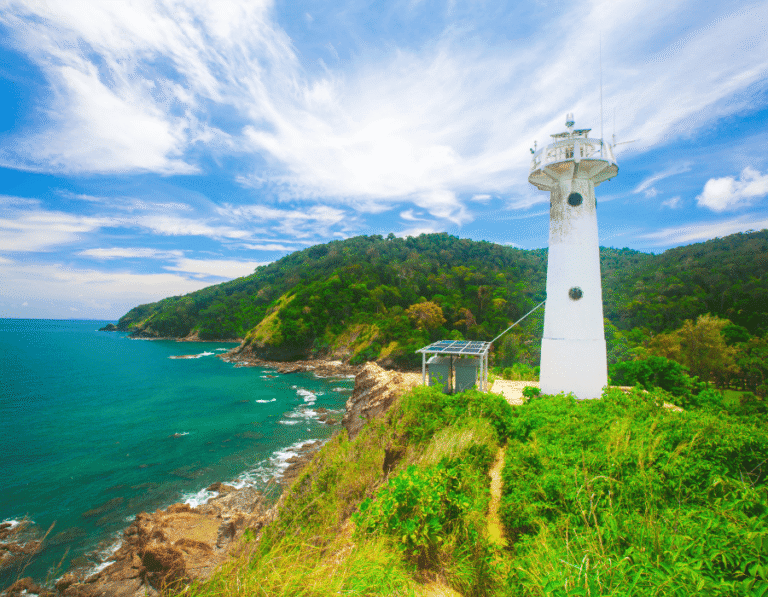One week in Paris? No problem! Very few travel bucket lists don’t include The City of Lights. Paris is oozing with romance and charm – not to mention high-end style. Known for the striking Eiffel Tower, Louvre Museum, and of course macaroons!
Sink your teeth into our guide to one week in Paris.
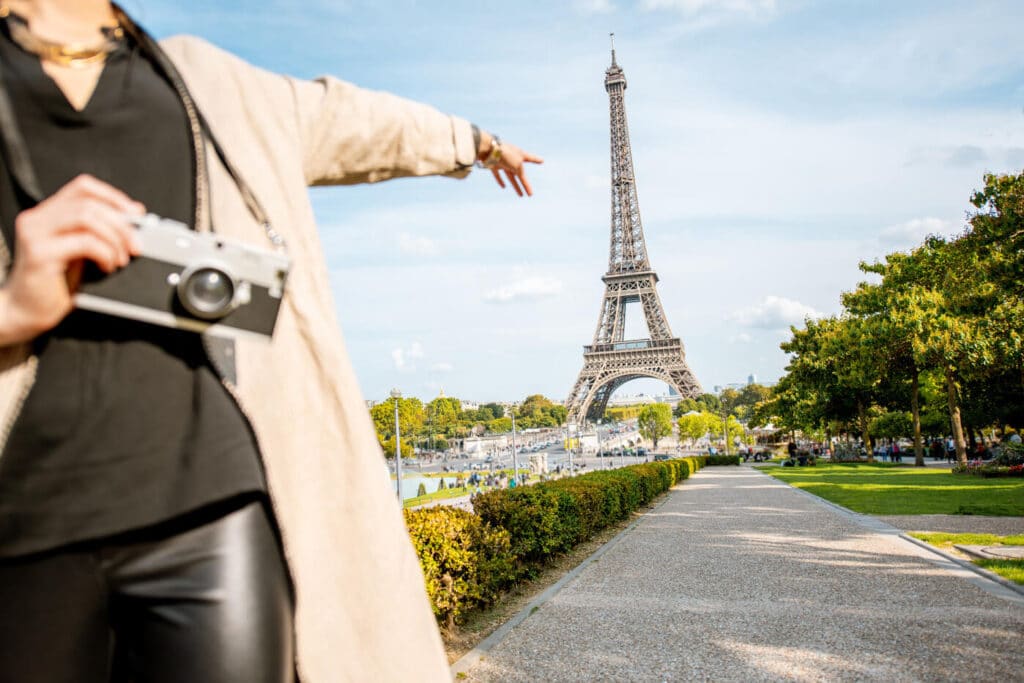
Tips for First-Timers In Paris
First of all, learn more about where you’re going!
Paris is a big city. And it can be overwhelming with all its different bustling districts, sights to see, accommodation choices, and transportation! Here’s a little rundown on Paris for beginners.
- Learn The Lingo: Locals in France appreciate it when tourists try to communicate even with some basic phrases. Greet people with a simple “Bonjour” and download a language app to learn a little Français before you say Bon Voyage and jet off to the City of Lights!
- Cultural Etiquette: Parisians value politeness. Always greet with a “Bonjour” or “Bonsoir” when entering shops or restaurants. Tipping is not obligatory in Paris since service is included, but rounding up or leaving small change is appreciated for excellent service.
- Best Time To Go: While Paris is beautiful year-round, the best time to visit is springtime, which occurs from May to June and from September to October. This time of year is usually less crowded, less expensive, and the weather is lovely!
- Plan Ahead: Pre-book museum tickets and dining reservations, especially at popular spots, to avoid long waits.
- Safety: While Paris is relatively safe, you should be aware of pickpockets. Be alert in touristy hot spots like the Eiffel Tower, Montmartre, Notre Dame, and the Louvre, and when traveling via the Metro.
- Getting Around: The best way to get around Paris is through public transport – the Metro, bus, and bikes. The former two are very well connected. Take the Hop On Hop Off Bus to do all your sightseeing – every 10 minutes, a bus comes to a stop. Taxi’s in Paris are pretty expensive, and most drivers don’t speak English.
- Get All Your Passes & Tickets Before: Make sure you pre-book your sightseeing tickets before you get to the city. Not only are these budget-savvy options, but many places offer tickets that allow you to skip the queue – which you’ll want to make the most of your time in Paris. Buy your tickets directly at Get Your Guide.com. It’s a reputable website for buying entrances to sights and museums.

One Week in Paris: What to See
So, you’re wondering what to see in Paris in 7 days – well, this itinerary pretty much allows for almost all of the top sights. For instance, you’ll probably decide to visit Disneyland because you’re traveling with little ones – or if you’re a wannabe Disney Princess like me.
Let’s assume you have exactly one week in Paris – so in theory, that’s seven, maybe eight nights in the city. Let’s discount most of the first day you arrive because there’s customs, luggage collections, and getting through the traffic to your accommodation. You’ll probably want to unpack and freshen up. And you might be jetlagged – so take it easy!
A great way to get the most of your one week in Paris is to get out early! That way, you’re avoiding the crowds and making the most of your day!
Good To Know: This itinerary is packed, but it’s structured to minimize commutes between attractions, and on most days, it can be followed in reverse. You can also mix up the order of the days to suit you.
Tip: Try to visit the Louvre on a Wednesday or Friday when the line is open till late. This means you can go in the evening when it’s not as crowded as normal.
Day 1: Eiffel Tower, Arc de Triomphe, Champs-Elysées and Tuileries Garden
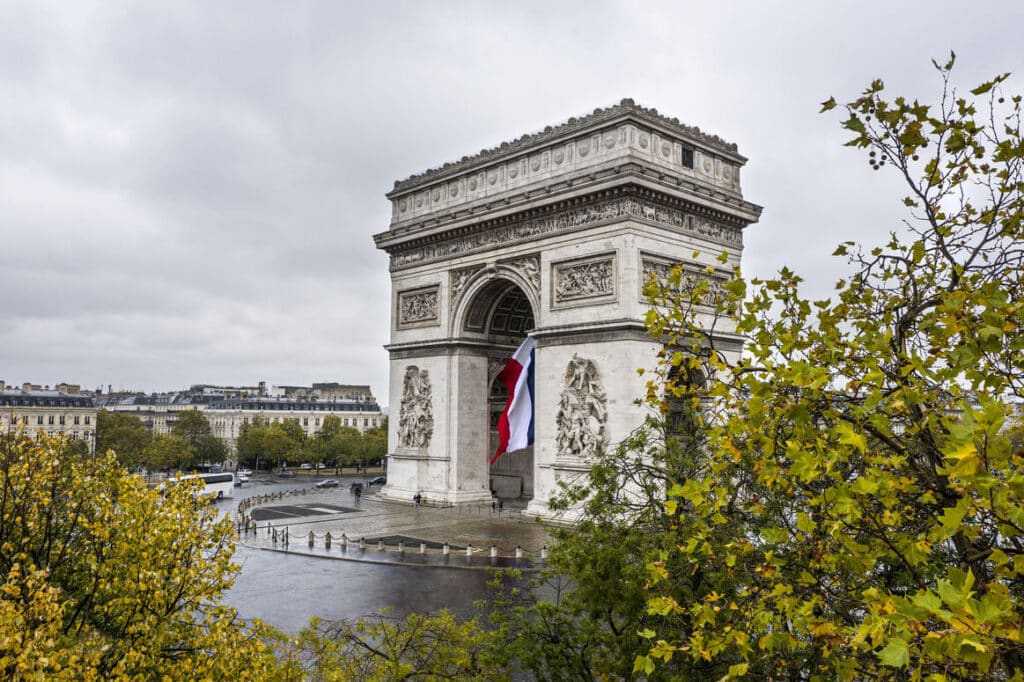
Start your week in Paris with a bang! Visit the iconic Eiffel Tower for incredible views of the city, then admire the tower in all its magnificent glory from all viewpoints. Take a stroll to the Arc de Triomphe and the Champs-Elysées (snap all those shots), continue to Place de la Concorde, and end off at the beautiful Tuileries Garden.
The itinerary is pretty easy to follow; start at the Eiffel Tower and walk your way towards the Louvre.
If you want sunset or evening views of the Eiffel Tower to catch the famed light show, just follow this day’s itinerary the other way around. The Arc de Triomphe du Carrousel, near the Louvre, will be your starting point.
Good To Know:
- Eiffel Tower. The Eiffel Tower is open daily from 9:30 AM to 11:45 PM, with the last ticket sold at 10:30 PM. Stairs are open from 9:30 AM to 5:30 PM, offering a different experience than the elevator. Plan for at least 2 hours to fully explore, take photos, and enjoy the views. Consider visiting at sunset for stunning city views. For a special treat, dine at one of the tower’s restaurants, or take a picnic to the nearby Champ de Mars.
- Arc de Triomphe. The Arc de Triomphe is open daily from 10:00 AM to 10:30 or 11:00 PM, depending on the season. It’s closed on select French holidays, so check ahead if visiting around a holiday. The climb to the top involves 284 steps, so wear comfortable shoes. Your Paris Museum Pass covers entry, allowing you to bypass lines. Visit at night to see the Champs-Élysées lit up or at sunset for a less crowded experience.
- Champ-Elysées. The Champs-Élysées, one of the most famous avenues in the world, is open for shopping from 10:00 AM to 8:00 PM. Some stores stay open later, especially during the holiday season. This is a free attraction, but keep in mind that it can get very crowded, especially during peak hours and on weekends. For a break from the hustle, stop by one of the many cafés for a coffee or pastry.
- Place de la Concorde. This historic square is free to visit and open 24/7. It’s the largest square in Paris, known for its grand fountains and the iconic Obelisk. Place de la Concorde is an excellent spot for photos, especially in the early morning or at sunset when the lighting is soft. It’s also a great starting point for a leisurely walk
- Tuileries Garden. Open daily, with hours varying by season—from 7:00 AM or 7:30 AM until 7:30 PM, 9:00 PM, or 11:00 PM. The gardens are a perfect place for a leisurely walk, a picnic, or just to relax by one of the many fountains. You can also visit the small Musée de l’Orangerie at the west end of the gardens.
Day 2: Louvre, Palais-Royal, and Seine River Cruise
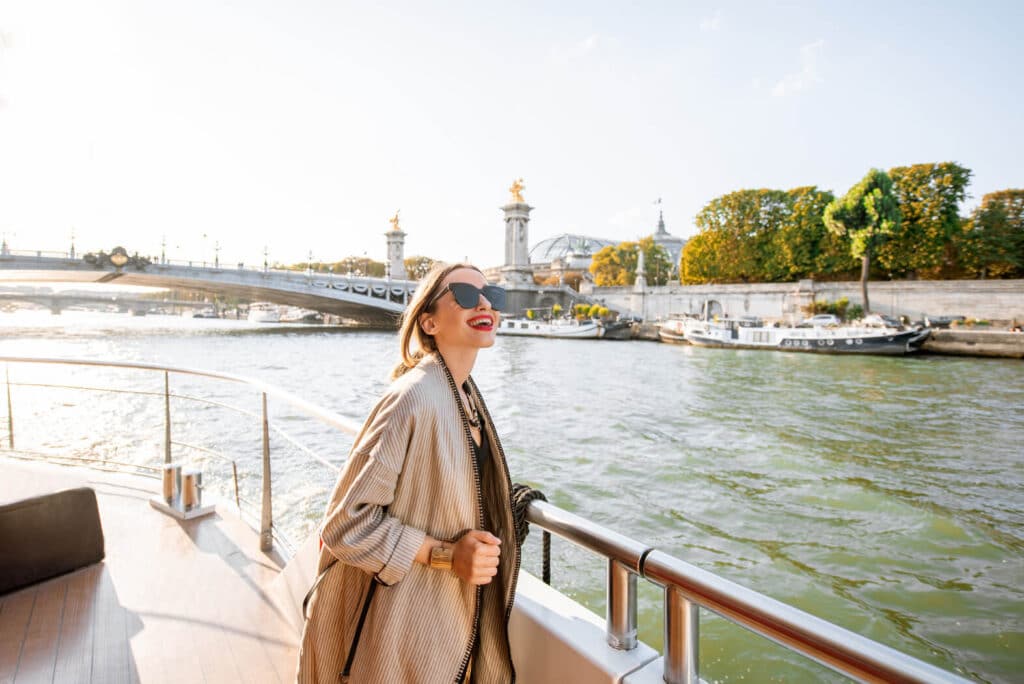
Seeing as you have one whole week in Paris, you won’t regret devoting an entire day to the Louvre. After all, it is the world’s largest museum. Once you’re done, pop by the Palais-Royal, and then head to the river on foot for your Seine River cruise.
Good To Know:
- Louvre. The museum is open every day except Tuesday, from 9:00 AM to 6:00 PM. It’s closed on select public holidays, so check ahead. The Louvre is vast, so plan to spend at least half a day there. Buying tickets in advance is strongly recommended to avoid long lines. The Paris Museum Pass covers entry, but you’ll still need a timed entry ticket.
- Palais-Royal. This historic palace and its gardens are open from 8:00 AM to 8:30 PM (October to March) and until 10:30 PM (April to September). It’s a peaceful spot to escape the city’s hustle and enjoy the beautiful architecture and manicured gardens. The nearby Comédie-Française theater and the many designer boutiques make this area worth exploring.
- River Seine Cruise. Depending on the time of day, you can choose between a relaxing daytime cruise, a romantic sunset sail, or an evening dinner cruise. Evening cruises often include champagne or dinner, making them a special way to see the illuminated city. Booking in advance is recommended, especially for dinner cruises.
Day 3: Musee d’Orsay, the Latin Quarter, and Ile de la Cité
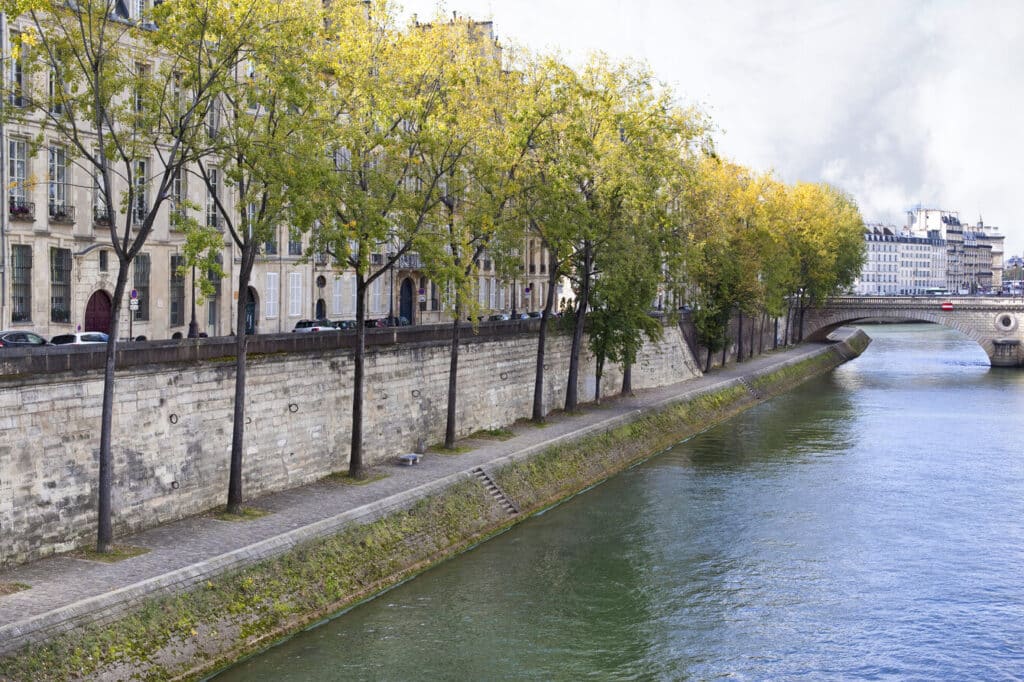
Day 3 of your week in Paris is all about art and sights. After you visit Musee d’Orsay, meander around the Latin Quarter and make your way to the Ile de la Cité.
If you’re doing this portion of the trip on a Thursday, then follow this itinerary in reverse because the museum closes at 9:45 PM.
Good to Know:
- Musee d’Orsay. Open from Tuesday to Sunday, 9:30 AM to 6:00 PM, with late hours on Thursdays until 9:45 PM. The museum is known for its extensive collection of Impressionist art. Special exhibitions often draw large crowds, so check the schedule and plan accordingly. Renting an audio guide can enhance your visit, offering insights into the most significant works.
- Luxembourg Gardens. These beautiful gardens are open daily from 8:30 AM to 9:30 PM. They are perfect for a morning jog, an afternoon picnic, or just relaxing while people-watching. The gardens also house the Luxembourg Palace, which is the seat of the French Senate.
- The Pantheon. Open daily from 10:00 AM to 6:00 PM (until 6:30 PM in the summer). The Pantheon is a mausoleum containing the remains of distinguished French citizens. Climb to the dome for one of the best panoramic views of Paris.
- Shakespeare and Company. This iconic bookstore is open daily from 11:00 AM to 7:00 PM. It’s more than just a bookstore; it’s a piece of literary history. Spend some time browsing the shelves or attending one of the many readings and events held there.
- Sainte Chapelle. Open daily from 9:00 AM to 7:00 PM, Sainte-Chapelle is famous for its stunning stained glass windows. Visit in the morning or late afternoon to see the sunlight streaming through the glass, casting colorful light across the chapel. Buying tickets online can save you from the long lines.
- Notre Dame. While the interior remains closed due to ongoing restoration, you can still admire the cathedral’s exterior. The area around Notre Dame, including the Île de la Cité, is perfect for a scenic walk along the Seine.
Day 4: Versailles
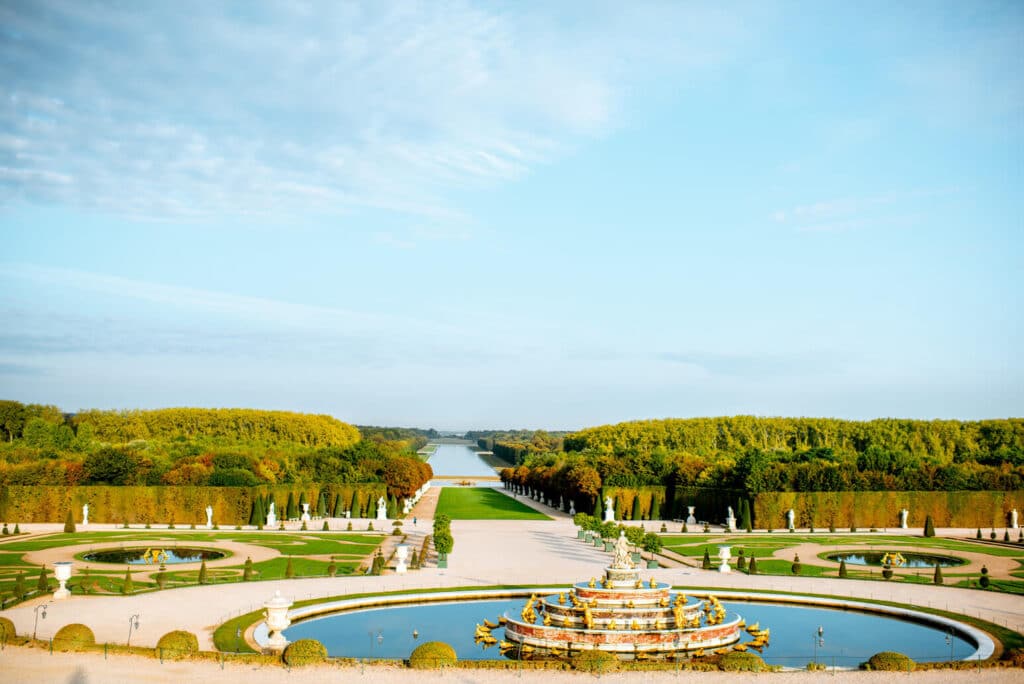
If you have one week in Paris, it would be a cardinal sin to skip the magnificent Versailles. If you choose to leave the city for a day, it should be to go here. Versailles is the symbol of all the excesses of the French Monarchy. The former hunting lodge was transformed into a massive castle on Louis XIV’s orders when he decided to move his court there to keep it under his eye.
Have the day to fully explore the palace in all its glory, as well as the beautifully landscaped gardens and the nearby Trianon estates. Get a guided tour, which typically lasts around 2 hours, and then you are free to explore on your own.
The cheapest and easiest way to get to Versailles from Paris is by RER C. Get a return ticket from the train station in Paris to avoid the ticket line at the station on the way back.
Good to Know:
- Versailles. The Palace of Versailles is closed on Mondays and tends to be very crowded on weekends and Tuesdays. Buy tickets online in advance and arrive early to avoid long queues.
Consider booking a guided tour to skip the line and get a deeper understanding of the palace’s history. Don’t miss the stunning gardens and the smaller palaces (Grand Trianon and Petit Trianon) within the estate. Renting a bike or a golf cart is a great way to explore the extensive grounds.
Day 5: Montmartre
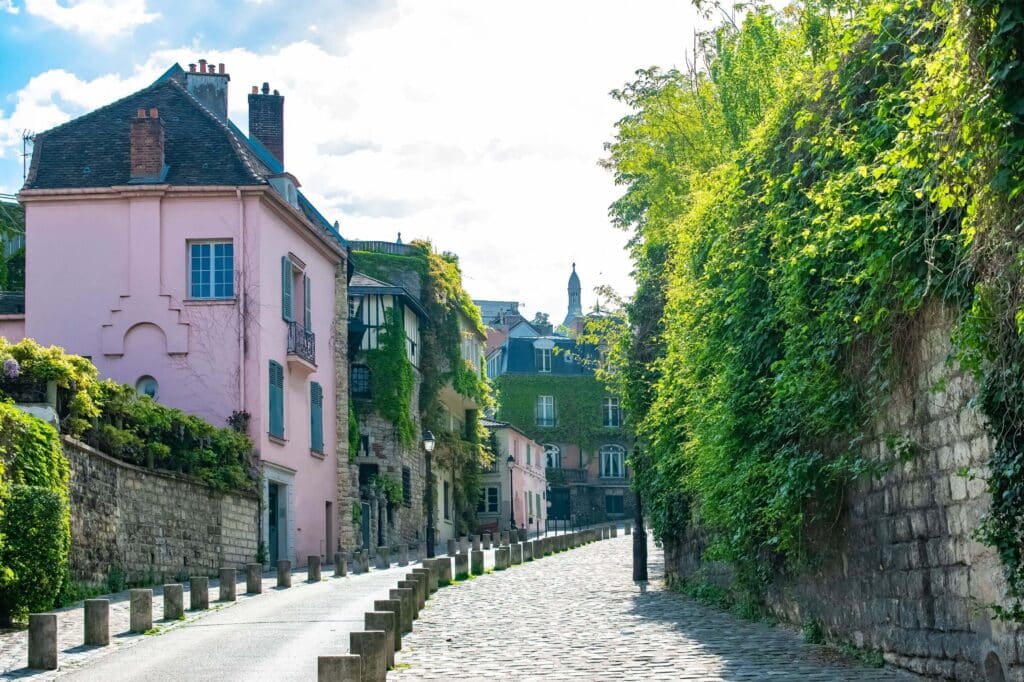
Take the entire day to wander around one of Paris’ most charming neighborhoods. You can visit the Moulin Rouge, one of the city’s most famous cabaret shows, the Sacre-Coeur, a Romano-Byzantine Basilica dating back to 1875, and then go in search of the hidden corners of Montmartre.
You can opt to explore this area on your own or take a guided tour to discover all the hidden gems.
Don’t visit Montmartre on weekend days – it gets super crowded.
Good to Know:
- Montmartre. The neighborhood’s steep hills can be challenging, so wear comfortable shoes. For an easier ascent, take the Montmartre Funicular, which costs the same as a Metro ticket. The area is busiest in the afternoon, so visit early for a more peaceful experience. Be aware of the artists in Place du Tertre—while many offer genuine services, some can be persistent or charge high prices. Montmartre is also home to some excellent small museums, like the Musée de Montmartre, that offer a deeper insight into the area’s artistic history.
Day 6: You Choose
There are two options here depending on whether you want to take another day trip from Paris to visit Disneyland or visit another wonderful neighborhood in the city.
Option 1: Père Lachaise, Les Marais, and Centre Pompidou
There are many cemeteries in Paris, but if you decide to visit just one, it has to be Père Lachaise. Then move on to Les Marais to explore and end your day at Centre Pompidou for urban local scenes and street art.
Good to know:
- Père Lachaise. Open daily from 8:00 or 8:30 AM to 5:30 or 6:00 PM, depending on the season, Père Lachaise is the largest cemetery in Paris and one of the most famous in the world. It’s the final resting place of notable figures like Jim Morrison, Oscar Wilde, and Edith Piaf. The cemetery’s peaceful, tree-lined avenues make it an interesting spot for a quiet walk. Guided tours are available if you want to learn more about the history and famous graves. Maps are also available to help you locate the most famous tombs.
- Les Marais. Le Marais is one of Paris’s oldest and most charming neighborhoods, known for its narrow medieval streets, historic architecture, and vibrant cultural scene. It’s free to explore and is particularly popular for its trendy boutiques, art galleries, and cafés. The area also has a rich Jewish heritage, evident in its synagogues and traditional bakeries. Spend time wandering through Place des Vosges, the oldest planned square in Paris, and visit the Musée Carnavalet, which tells the history of Paris.
- Centre Pompidou. Open Monday, Wednesday, Thursday, and Friday from 11:00 AM to 9:00 PM, and from 10:00 AM to 9:00 PM on weekends and public holidays. Centre Pompidou is a modern art museum and cultural center, known for its unique architectural design, with color-coded pipes and exposed structure. Inside, you’ll find one of the world’s most important collections of modern and contemporary art. The museum’s rooftop terrace offers stunning views of Paris. The adjacent public library and cinema also host a variety of cultural events.
Option 2: Disneyland Paris

The massive park is divided into Disneyland Park and Walt Disney Studios Park, but you probably won’t be able to see this all-in-one go. Make sure you try out the adrenaline-filled Rock’n’Roller Coaster Aerosmith – it’s the fastest ride in the park.
Disneyland is located in Marne-la-Vallée, 30 km from downtown Paris. Get there by RER, getting off at Marne-la-Vallée. From there, you just have to follow directions. Make sure to get Disneyland Paris tickets before you get there – the lines might be long.
Good to know:
- Disneyland Paris. Disneyland Paris is located about 32 kilometers east of Paris and is easily accessible by RER A train from central Paris, taking about 45 minutes. The park is divided into two main areas: Disneyland Park and Walt Disney Studios Park. It’s advisable to purchase tickets in advance, especially during peak seasons, to avoid long queues. Consider staying at a Disney hotel for early access to the parks. Bringing snacks and water can save you time and money, as food in the park can be expensive. Be sure to download the Disneyland Paris app for up-to-date wait times, show schedules, and interactive maps.
Day 7: Montparnasse Tower and Catacombs

What better way to end your one week in Paris than by admiring it from above once again! That’s why you should climb Montparnasse tower.
Good to know:
- The Catacombs. Open Tuesday to Sunday from 9:45 AM to 8:30 PM, with the last admission at 7:30 PM. Closed on Mondays. The Catacombs of Paris are an extensive underground ossuary, housing the remains of over six million people. The tunnels can be cool and damp, so dress appropriately. The visit can be eerie but fascinating, offering a unique perspective on the city’s history. Because of the narrow passages and the number of stairs, it may not be suitable for those with claustrophobia or mobility issues. Tickets sell out quickly, so booking in advance is essential.
- Montparnasse Tower. Open daily from 11:00 AM to 10:30 PM or 11:30 PM, depending on the day. Montparnasse Tower’s 56th-floor observation deck offers panoramic views of Paris, including a full view of the Eiffel Tower. It’s less crowded than the Eiffel Tower, making it a great alternative for those looking to enjoy the city from above without the long waits. Visiting at sunset is particularly popular, as you can watch the city transition from day to night. The rooftop terrace has a café where you can enjoy a drink while taking in the view.
Where to Stay in Paris
When staying in Paris, consider your priorities—whether it’s proximity to major attractions, a vibrant neighborhood atmosphere, or budget-friendly options.
The Marais offers a mix of history and nightlife, while Saint-Germain-des-Prés exudes classic Parisian charm. For luxury, consider staying near the Champs-Élysées or Eiffel Tower. If you’re on a budget, look for accommodations in the Latin Quarter or Montmartre. Apartments and boutique hotels are popular choices, providing a more intimate experience.
How To Pack For A Week In Paris
Ready to head to the city of love? Here are some tips to help you pack!
- Clothing: Parisian fashion leans towards classic and chic, so pack versatile pieces in neutral colors that you can mix and match. Essentials include a couple of pairs of well-fitting jeans or trousers, comfortable walking shoes (think stylish sneakers or loafers), and a few tops or blouses. Include a dress or two for dining out or evening events, and don’t forget a lightweight jacket or trench coat for layering, especially in spring or fall.
- Weather Considerations: Paris weather can be unpredictable. In spring and fall, temperatures can vary, so bring layers—light sweaters, cardigans, and scarves are key. For summer, pack breathable fabrics like cotton or linen, and include a hat and sunglasses for sunny days. Winter travelers should bring a warm coat, gloves, a hat, and sturdy boots. An umbrella is essential year-round, as rain showers can occur unexpectedly.
- Accessories: Parisians often accessorize with scarves, so pack a couple to add flair to your outfits. A crossbody bag or a small, secure backpack is ideal for daily excursions, helping you keep your belongings safe from pickpockets. If you plan to visit churches or formal venues, pack a modest outfit that covers your shoulders and knees.
- Toiletries and Cosmetics: Bring your usual toiletries, but remember that many brands are available in Paris if you need to purchase anything. Travel-sized toiletries are convenient, and French pharmacies are renowned for skincare products, so leave some space to bring home new beauty finds.
- Technology and Essentials: A universal travel adapter is a must for charging electronics. Consider packing a portable charger for your phone, as you’ll likely be using it for navigation and photos throughout the day. A small, foldable tote bag can be handy for carrying purchases or packing extra items.
- Documents and Miscellaneous: Bring copies of your passport, travel insurance, and any reservation confirmations, just in case. A small notebook or travel journal can be useful for jotting down notes or directions. If you plan to visit several museums or attractions, consider purchasing a Paris Museum Pass, which can save time and money.
How Many Days In Paris Is Enough?
While there is never enough time in this beautiful city, you can fit in all the major attractions and then some during your one week in Paris with this in-depth itinerary.
Don’t forget to download the Air Doctor app before your trip in case you need to find a doctor who speaks your language. Available on Android and iOS.









